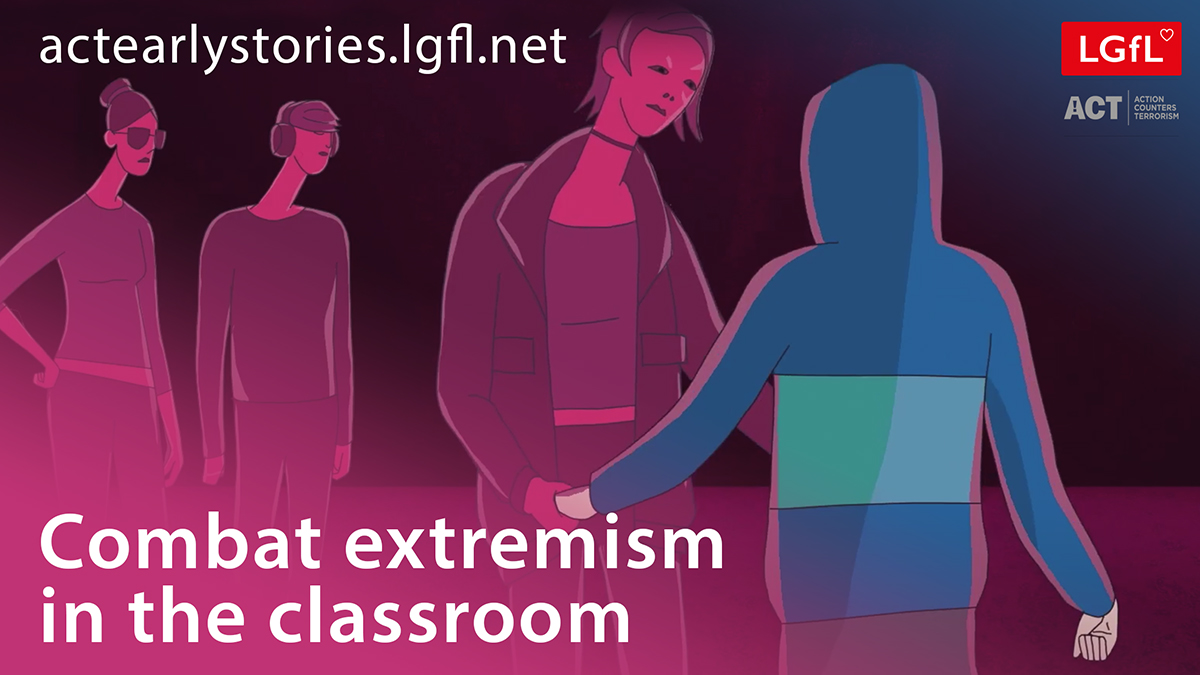This blog post was published under the 2022 to 2024 Conservative government
By Mubina Asaria, Online Safeguarding Consultant at London Grid for Learning
Protecting students against the threat of extremism and online exploitation can be difficult. Addressing the curriculum through a contextual safeguarding approach can be an effective way to build young people’s resilience to these threats. Embedding the foundational knowledge and skills essential to manage risk requires a holistic approach. This could be through having conversations with young people to reflect on their context and any risk factors they could experience – online or through association with peers or adults – combined holistically with cross-curricular opportunities to build on key safeguarding themes.
How can Act Early Stories help your curriculum address this risk?
Designed to be used across the curriculum and beyond, each story has a video case study and ready-to-use slides featuring icebreakers, conversation starters and cross-curricular activities. These can be incorporated into literacy, drama, Religious Education and PSHE/RSHE as well as assembly time or drop-down days, to help young people think critically about vulnerability and reflect on the tactics used by extremists by unpicking:
- peer-pressure and identity
- dynamics around grooming
- indicators of exploitation
- protective factors
- barriers to disclosure
Who is it for?
Act Early Stories is aimed at secondary age students and has been designed with both schools and youth centres in mind. It comes with guidance notes to differentiate learning, catering to a variety of settings and is suitable for staff who may not have as much knowledge of the issues raised, as well as those with more experience. Practitioners can choose to use the entire session for a classroom lesson or select individual activities carefully chosen for shorter sessions to act as building blocks or enhance previous knowledge and skills learnt.
What does it cover?
Based on three real-life stories of young people whose lives have been affected by radicalisation, the activities have been designed to spark discussion and promote critical thinking:
- Michael’s story explores vulnerability through religious extremism and encourages young people to recognise how extremists exploit issues around identity for their own agenda, through group-led discussion and reflection.
- Mustafa’s story features a drama-based video and literacy activity unpicking the indicators of exploitation, to help students understand peer pressure and the grooming process. This provokes discussions around what extreme views are, the implications these can have, why some people are more likely to be influenced than others, why it may not always be easy to leave and how to seek support.
- John’s story looks at how he was radicalised by the extreme right wing and includes a letter to his younger self. Students are encouraged to unpick the building blocks of extremism, to recognise the consequences of not challenging extremist behaviour and where to seek support and help.
Next steps:
- Download Act Early Stories.
- The theme for Safer Internet Day 2023 is ‘Want to talk about it? Making space for conversations about life online’ – why not use one of the activities or sessions week beginning 6th February to start the conversation?
- Parents and family members are best placed to notice any small changes taking place. Signpost them to ACT Early for top tips and advice talking to young people and getting help.
- You can find more resources at Educate Against Hate and London Grid for Learning to support your whole school approach.

